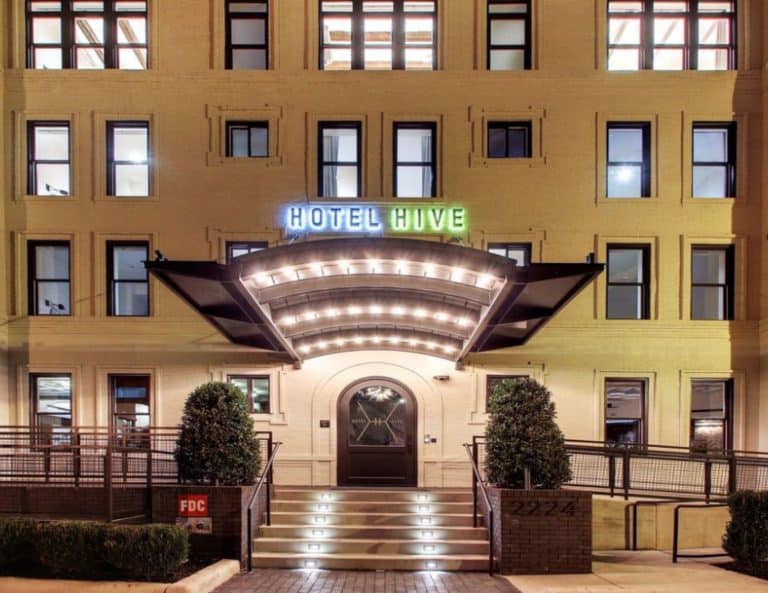Find out the reasons behind hotels charging for parking and how it impacts your stay.
If you’re short on time, here’s a quick answer to your question: Hotels charge for parking to cover the costs of maintaining and securing parking facilities.
In this article, we will explore the reasons behind hotel parking charges, the factors that influence the costs, and tips to navigate this aspect of your hotel stay.
Understanding the Costs
Have you ever wondered why hotels charge for parking? It may seem like an unnecessary expense, especially if you have already paid for your room. However, there are several reasons behind this practice. Let’s take a closer look at some of the factors that contribute to the cost of parking at hotels.
Maintenance and Upkeep
One of the main reasons hotels charge for parking is the maintenance and upkeep of the parking facilities. Just like any other infrastructure, parking lots require regular maintenance to ensure they remain safe and functional. This includes repairing potholes, repainting lines, and fixing any structural damage. Additionally, hotels need to invest in lighting and signage to enhance visibility and ensure the safety of their guests. These ongoing maintenance costs are factored into the parking fees.
Security Measures
Another crucial aspect of hotel parking is the implementation of security measures. Hotels have a responsibility to provide a secure environment for their guests, and this extends to their parking facilities. They often invest in surveillance cameras, security personnel, and access control systems to deter theft and vandalism. These measures not only protect the vehicles parked on the premises but also contribute to the overall safety and peace of mind for guests. The costs associated with maintaining these security measures are reflected in the parking fees.
Operating Expenses
Hotels, like any other business, have operating expenses that need to be covered. These expenses include staffing, utilities, insurance, and property taxes. By charging for parking, hotels can generate additional revenue to offset these costs. This allows them to keep their room rates competitive and provide the amenities and services that guests expect. While it may be frustrating to pay for parking, it is part of the overall financial model that keeps hotels running smoothly.
It’s worth noting that not all hotels charge for parking. Some luxury hotels or upscale establishments include parking as part of their room rates to provide a more convenient experience for their guests. Additionally, some hotels may offer discounted or complimentary parking for certain guests, such as loyalty program members or guests with disabilities. It’s always a good idea to check with the hotel beforehand to understand their parking policies and any potential discounts that may apply.
By understanding the costs associated with hotel parking, we can appreciate the reasons behind these charges. It’s a necessary expense that ensures the safety, security, and convenience of guests. So the next time you stay at a hotel and are asked to pay for parking, remember that it is part of the overall package that allows hotels to provide a great experience for their guests.
Location and Demand
One of the main reasons why hotels charge for parking is because of the location they are situated in and the demand for parking spaces in that area. In urban areas where space is limited, hotels often have to pay a premium to secure parking spaces for their guests. This cost is then passed on to the guests in the form of parking fees.
Urban Areas and Limited Space
In densely populated urban areas, finding parking can be a challenge for both residents and visitors. Hotels located in these areas often have limited space available for parking, making it necessary to charge for parking to manage the demand. The cost of acquiring and maintaining parking facilities in these areas can be significant, and charging for parking helps hotels offset these expenses.
For example, in cities like New York or San Francisco, where real estate prices are at a premium, hotels may have to lease parking spaces from nearby garages or parking lots. This additional expense is then passed on to the guests.
High Demand and Limited Supply
Another factor that contributes to hotels charging for parking is the high demand for parking in popular tourist destinations or areas with limited parking options. Hotels situated in such areas often have a limited supply of parking spaces available for their guests. This high demand allows hotels to charge for parking as a way to control the usage and ensure that parking spaces are available for their guests.
For instance, hotels near popular tourist attractions or convention centers may have limited parking facilities due to the high volume of visitors. Charging for parking helps hotels manage the demand and ensures that parking spaces are reserved for their guests.
It’s important to note that not all hotels charge for parking, especially those located in areas where parking is readily available or included in the room rate. However, in urban areas with limited space and high demand, it is common for hotels to charge for parking as a means to cover costs and manage parking availability for their guests.
Alternatives and Discounts
Off-Site Parking
When staying at a hotel that charges for parking, it’s worth exploring off-site parking options as an alternative. Many cities have off-site parking lots or garages located near hotels that offer significantly lower rates compared to hotel parking. These off-site parking facilities may be just a short walk or a quick shuttle ride away from the hotel. By utilizing off-site parking, guests can save money and still have a convenient place to park their vehicles.
Some cities even have dedicated websites or apps that provide information about nearby parking options, their rates, and availability. These resources can help travelers find the best off-site parking options near their hotel.
Special Rates and Packages
Hotels often offer special rates and packages that include discounted or even complimentary parking. These deals can be found on hotel websites, travel websites, or through travel agents. By taking advantage of these special rates and packages, guests can save money on parking fees.
Additionally, some hotels may offer parking discounts for certain groups such as AAA members, government employees, or frequent guests. It’s worth checking with the hotel directly or researching online to see if any discounts are available.
In some cases, hotels may also provide discounted parking rates for guests who are attending events or conferences at the hotel. These discounted rates can be a significant saving for guests who are staying for an extended period.
Remember, it’s always a good idea to inquire about parking options and discounts when making a hotel reservation. The hotel staff will be able to provide information about any available discounts or alternatives to their parking facilities.
For more information on finding off-site parking options and special hotel parking deals, websites like ParkWhiz.com and ParkMe.com can be helpful resources.
Transparency and Communication
When it comes to hotel charges, transparency and communication play a crucial role. This is especially true when it comes to parking fees. Guests appreciate honesty and openness from hotels, and being upfront about parking charges is an important part of building trust and maintaining a positive guest experience.
Disclosing Parking Fees
One way hotels can demonstrate transparency is by clearly disclosing parking fees upfront. This can be done during the booking process, either on the hotel’s website or through a third-party booking platform. By providing this information before the guest arrives, hotels can ensure that guests are fully aware of any additional costs they may incur during their stay.
Hotels can also include information about parking fees in their confirmation emails or pre-arrival communications. This gives guests an opportunity to plan ahead and budget accordingly. Including details about the parking options available, such as self-parking or valet parking, can also help guests make informed decisions.
Additionally, hotels can display signage in their parking areas or at the front desk to inform guests about parking fees. This allows guests who may not have seen the information during the booking process to be aware of the charges before they park their vehicles.
Clear Communication with Guests
Clear and effective communication with guests is key to ensuring a positive experience. Hotels should train their staff to provide accurate and consistent information about parking fees. Front desk agents should be knowledgeable about the fees, any discounts or packages available, and any specific policies or restrictions related to parking.
It is also important for hotels to have a dedicated customer service line or email address where guests can inquire about parking fees or seek clarification. Prompt and helpful responses to guest inquiries can go a long way in building trust and ensuring guest satisfaction.
Furthermore, hotels can include information about parking fees in their welcome packets or guest information guides. This provides guests with a comprehensive overview of the hotel’s amenities and policies, including parking.
Tips for Navigating Parking Charges
Research and Comparison
When staying at a hotel, it’s important to research and compare parking charges beforehand. Different hotels may have varying policies and pricing structures for parking. Some hotels offer complimentary parking, while others charge a fee. By doing your due diligence and researching ahead of time, you can avoid any surprises and choose a hotel that aligns with your parking needs and budget.
One way to research is by visiting the hotel’s official website. Many hotels provide information about their parking policies, including whether they charge a fee and the cost per day. Additionally, you can read online reviews from previous guests to get a better understanding of their parking experiences at the hotel.
Comparing parking charges at different hotels can also help you make an informed decision. Take note of the prices, as well as any additional amenities or services included with the parking fee. This will help you evaluate the value you’re getting for your money and choose the best option for your stay.
Consider Alternatives
If the hotel you’re considering charges a high parking fee or doesn’t offer complimentary parking, it’s worth exploring alternative options. Depending on your destination, there may be nearby public parking lots or garages that offer more affordable rates. Some cities also have parking apps or websites that allow you to find and reserve parking spots in advance, potentially saving you money.
Another alternative is to consider staying at a hotel that is located within walking distance or offers convenient public transportation options. This way, you can avoid the need for a car altogether and save on parking charges. Additionally, some hotels may offer shuttle services to popular attractions or nearby parking lots, which can be a cost-effective solution.
Budgeting and Planning
When planning your trip, it’s important to factor in the cost of parking and budget accordingly. By including parking charges in your overall travel expenses, you can avoid any financial surprises during your stay. Consider whether the convenience of having a car outweighs the cost of parking, especially if you plan on spending most of your time at the hotel or exploring nearby attractions on foot.
It’s also worth considering any discounts or promotions that may be available. Some hotels offer discounted or bundled parking rates for guests, especially if you’re staying for an extended period. Additionally, certain membership programs or travel websites may offer exclusive deals on parking fees. Taking advantage of these opportunities can help you save money and make the most of your hotel stay.
Remember, understanding and navigating parking charges at hotels is all about being prepared and making informed decisions. By researching, considering alternatives, and budgeting accordingly, you can ensure a smooth and hassle-free experience during your trip.
Conclusion
While hotels charging for parking may seem inconvenient, it is a necessary aspect for them to cover the costs of maintaining and securing parking facilities.
Understanding the factors that influence parking charges and exploring alternatives can help you make informed decisions and minimize any potential inconveniences during your stay.
Remember to research and compare parking options, consider off-site alternatives, and plan your budget accordingly to ensure a smooth and hassle-free hotel experience.






